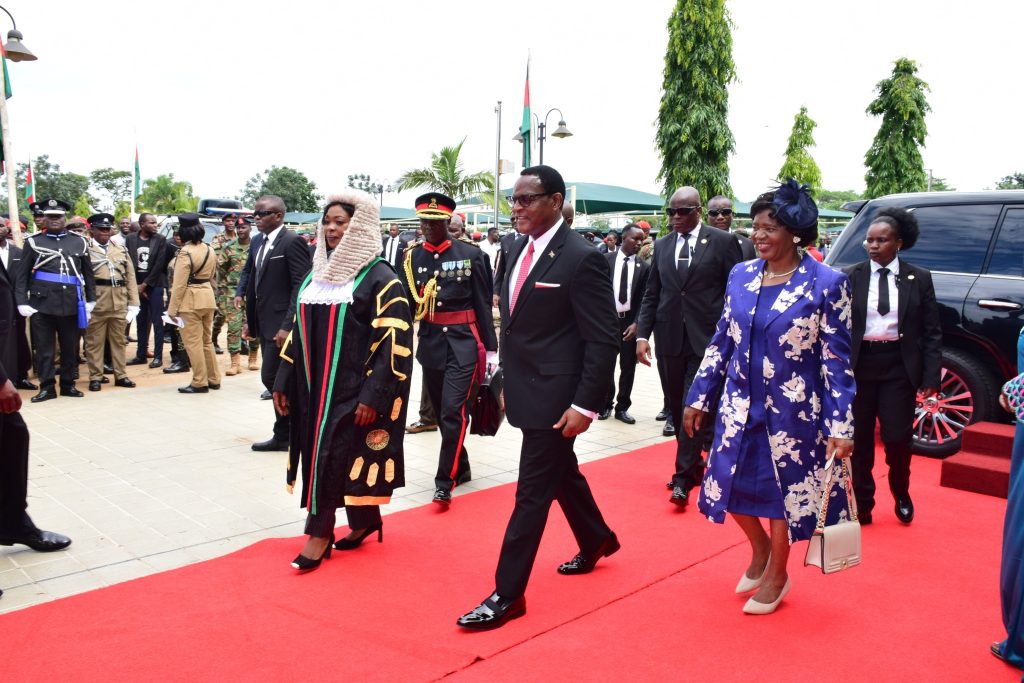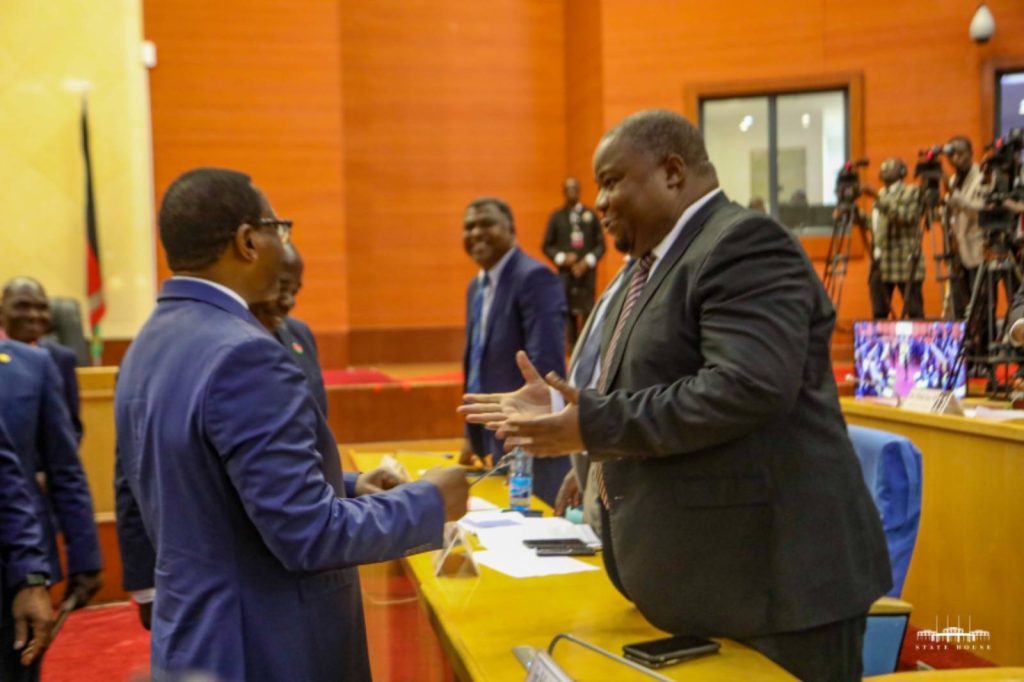Human Rights Consultative Commitee (HRCC) has sued President Lazarus Chakwera and National Assembly Speaker Catherine Gotani Hara for allowing Parliament to effect the Corrupt Practices Act (Amendment) Bill of 2022.
The amendment in question allows the Anti-Corruption Bureau (ACB) to prosecute cases without seeking consent from the Director of Public Prosecutions (DPP), a move HRCC argues is “unconstitutional and unreasonable” as it has created a parallel head of criminal prosecutions.
Sued over corruption law: Chakwera and Gotani-Hara
In Judicial Review Case No. 6 of 2023, HRCC wants to be granted permission for a judicial review and, if granted, it also wants the court to stop implementation of the amendment until its constitutionality is determined.
High Court of Malawi Judge Howard Pemba, who is based at the Lilongwe District Registry, is scheduled to hear the application on March 17 2023.
Reads the arguments: “The first defendant’s [the Speaker] decision allowing the National Assembly to deliberate and pass the Corrupt Practices (Amendment) Bill, 2022 was unreasonable considering that the Bill in question was clearly inconsistent with Section 99 of the Constitution.
“The first defendant’s [Hara] decision allowing the National Assembly to deliberate and pass the Corrupt Practices (Amendment) Bill, 2022 was uncosntitutional as it resulted in passing of an amendment that watered down the exclusively constututional powers of the Director of Public Prosecutions who is the overall head of criminal prosecutions in the country under Section 99 of the Constitution.”
Represented by lawyers George Jivason Kadzipatike and Chancy Gondwe, HRCC also accuses Hara of raising the status of the ACB boss to be at par with the DPP without amending the Constitution.
On the other hand, the President is faulted for assenting to “a faulty amendment”.
Kadzipatike in an interview on Tuesday said the first application they made in court was to be allowed to move for judicial review out of time as it commenced within three months of the decision.
He said: “By allowing the ACB to prosecute cases without the consent of the DPP, Parliament created a parallel head of criminal prosecutions to the DPP when the Constitution only recognises one central office of criminal prosecutions in the country.”
Malawi Law Society (MLS) president Patrick Mpaka said the amendment was a move in the right direction to invigorate the fight against corruption and to accord real independence to the ACB.
However, Catholic University of Malawi dean of law John-Gift Mwakhwawa is on record as having said it would be dangerous to have two prosecutorial authorities that operate without regard to each other.
He said: “We shouldn’t be too excited with individuals who occupy these public offices.”
The amendment came against the background of bad blood between the DPP and the ACB which came to light after former DPP Steven Kayuni refused to give consent to the bureau to prosecute a case involving Ashok Nair, an agent of United Kingdom-based businessperson Zuneth Sattar who has multi-million dollar procurement contracts with Malawi Government ministries, departments and agencies. Sattar is under probe for alleged corruption.
Likoma legislator Ashems Songwe moved a private member’s Bill to amend the Act and remove the provision which required ACB to seek consent from the DPP.
The post President, Speaker sued over corruption law first appeared on The Nation Online.
 Moni Malawi
Moni Malawi 

